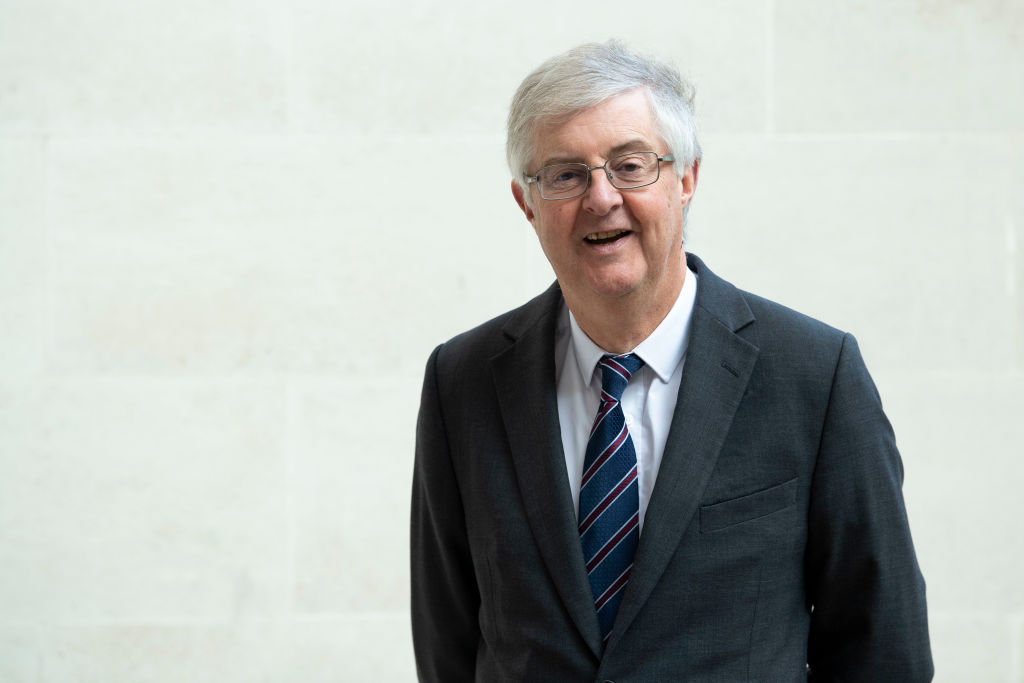In the current circumstances it is strange to recall that, until very recently, a common complaint of devolved politicians in Wales – as well as academics studying devolved politics – was a lack of media attention and profile. The ill-wind of Covid-19 has blown few people much good, but has unquestionably done a lot to raise awareness of some of the realities of devolved government.
There has been plenty of evidence in the past that many people in Wales were unaware that even health – on which the Welsh Government spends the majority of its budget – was devolved. Meanwhile, for his first year in the job Welsh First Minister Mark Drakeford was ‘Dr Who?’ for many Welsh voters: regular Welsh Political Barometer polls found about half or more respondents were unable to offer any view on him at all; and most of the rest were fairly unimpressed.
But if they didn’t know before, people are far more likely to know now. At various points during the coronavirus crisis, the Welsh Government has taken a somewhat different approach, or sought to enforce different rules to England; and for the past nine months the First Minister has been very much at the fore in explaining these actions. Mr Drakeford’s visibility ratings shot up, as did public approval. While Prime Minister Johnson’s ratings have slid substantially in Wales as elsewhere in Britain since spring, the First Minister’s have improved considerably. The crisis has arguably played to Drakeford’s strengths as much as it has highlighted Johnson’s weaknesses. No one would claim the former social policy professor is a natural political showman. But Drakeford’s command of policy detail and generally calm and understated manner seems to have gone down well during difficult times – and stood in stark contrast with the occupant of 10 Downing Street.
But have the First Minister and his Welsh Government colleagues now overreached? Wales is currently just over halfway through a ‘firebreak’ lockdown which has seen the Welsh Government reintroduce severe restrictions to try and slow the second wave of Covid-19 infections. This has generated severe criticism, both inside Wales and from outside. Particular opprobrium has been directed at a ban on the purchase of ‘non-essential’ items. The idea underpinning this ban – to minimise the time that people spend in shops during the firebreak period – doubtless made sense to Welsh Government ministers and their advisers, but its clumsy implementation has brought forth a torrent of criticism and ridicule on media (both social and otherwise).
A new Welsh Political Barometer poll, published this week, provides the first detailed evidence of public reactions to the Welsh ‘firebreak’. The polling was completed before Boris Johnson’s announcement on Saturday of similar measures in England. The overall message of the poll was broadly supportive of the Welsh Government’s approach. When directly asked whether they supported or opposed the current Welsh lockdown, respondents backed it by more than a two-to-one margin (60 per cent supporting compared to 26 per cent opposed, with the remainder unsure). Interestingly, in these divisive times, supporters of all parties in Wales supported the lockdown. Although Conservatives were more evenly balanced on the issue than Labour or Plaid Cymru voters, even they supported the lockdown by 50 to 39 per cent.
Our new poll does indicate that the Welsh public is weary and anxious. Popularity ratings for all party leaders were down from the previous poll in early September; down also were ratings of both the Welsh and UK governments’ handling of the Covid-19 crisis; and levels of reported trust in those governments, and their leaders, to ‘make the right decisions to tackle coronavirus’. Up by contrast, were respondents’ levels of anxiety about Covid-19. But there continues to be a substantial gap between ratings of the Welsh First Minister and his government, and their counterparts in London. Some 51 per cent of respondents indicated at least ‘a fair amount’ of trust in Drakeford’s decisions on coronavirus, and 56 per cent indicated similar trust in the Welsh Government; for Johnson and the UK government such trust was at only 28 per cent.
Prime Minister Johnson’s Saturday night announcement prompted a sudden and stark silencing of the fierce criticism that Welsh Tories had been directing against the Welsh Government’s approach. But even before the UK government changed tack, the evidence from our poll suggests that Welsh Conservatives were out of step with the public mood in Wales – and even the mood of many of their own supporters. There are very few people who have prospered from the difficult times that we are all living through. But, politically at least, Mark Drakeford appears to be one of them.
The Welsh Political Barometer poll, for ITV-Cymru Wales and Cardiff University, had a sample of 1,013 Welsh adults aged 16+ and was carried out online by YouGov from 26-29 October 2020.
Roger Awan-Scully is Professor of Political Science at Cardiff University and Chair of the Political Studies Association of the UK






Comments